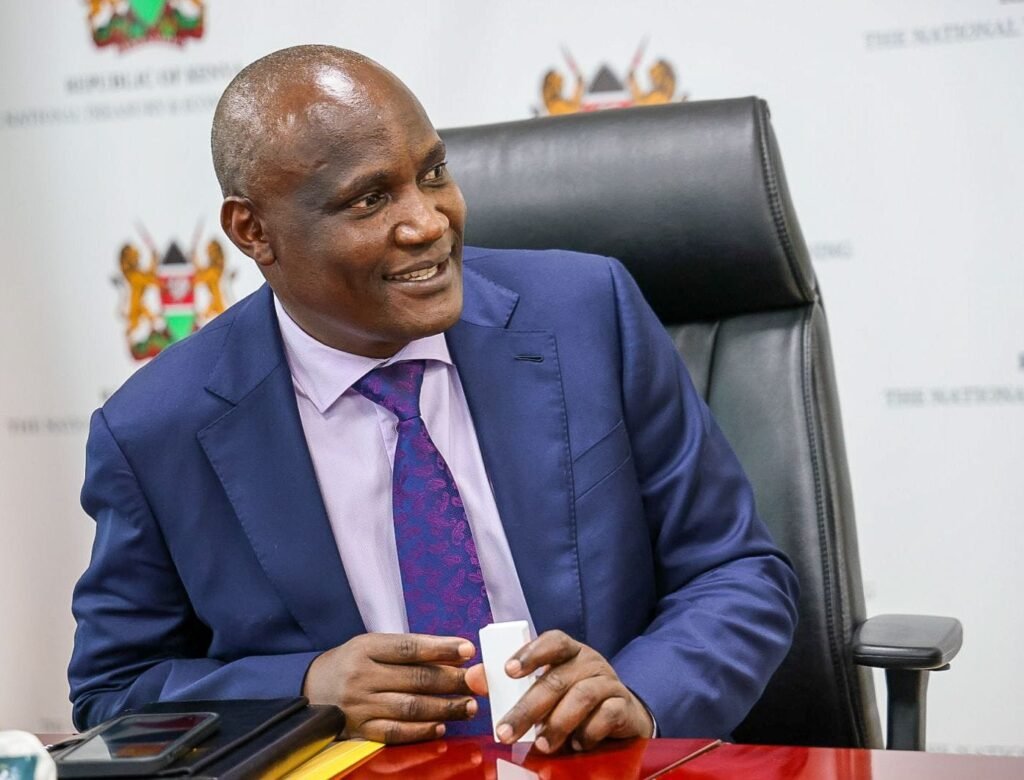The Ministry of Education and the National Treasury have come under sharp scrutiny from Parliament after an audit revealed that more than Sh183 billion allocated to the education sector cannot be fully accounted for.
The revelations triggered a storm during a live session before the Senate Education Committee on Wednesday, July 24, where Treasury Cabinet Secretary John Mbadi and Education Principal Secretary Belio Kipsang were grilled over budget implementation failures.
The audit covering the 2020/21 and 2021/22 financial years revealed substantial funding gaps intended for public schools. According to the report, at least Sh71 billion allocated for public secondary schools, Sh31 billion for Junior Secondary Schools (JSS), Sh14 billion for primary schools, and Sh67 billion for Special Needs Education in secondary schools is either missing or unaccounted for.
Lawmakers questioned how such substantial sums could disappear from a sector already struggling with underfunding. They accused the ministries involved of failing to ensure that money reaches the ground, particularly at a time when schools are facing acute shortages.
Many headteachers have raised concerns over delayed capitation, a lack of teaching materials, and strained infrastructure under the Competency-Based Curriculum (CBC), particularly in the newly introduced Junior Secondary Schools.
Addressing the committee, Treasury Cabinet Secretary John Mbadi maintained that his ministry had released the education funds as required. “The funds were disbursed to the Ministry of Education,” Mbadi told the lawmakers. “Tracking how they were distributed to individual schools lies within their mandate.”
Mbadi insisted that the Treasury had met its obligation in releasing the allocated amounts and appeared to shift responsibility to the Ministry of Education.
However, his remarks drew frustration from committee members, who accused him of failing to provide a clear paper trail. One senator, visibly angered, said, “You cannot simply wash your hands and claim the Treasury has no role. These are public funds. We need accountability, not blame-shifting.”
Education Principal Secretary Belio Kipsang, while responding to the queries, admitted that the ministry was facing administrative challenges that have slowed down disbursement and tracking. He acknowledged that the rollout of the Junior Secondary School program had strained the ministry’s capacity but rejected suggestions that the funds had been misappropriated.
“There may be gaps, but we have not diverted any money,” Kipsang stated. “We are conducting an internal audit to identify the points of failure and ensure that the funds reach their intended beneficiaries.”
Despite this assurance, senators expressed concern that the magnitude of the missing funds suggested more than just technical issues. One member of the committee remarked, “This is no longer a budgeting issue. This is a crisis of management and integrity. We are talking about money that should have supported children sitting in overcrowded classrooms or those with special needs who have now been abandoned.”
Another senator said, “The Ministry of Education has crippled the very system it is meant to support. You cannot explain away Sh183 billion with technical excuses.”
Lawmakers also questioned why funds allocated for Special Needs Education had not been prioritised, with one committee member calling it “a shameful neglect of the most vulnerable learners.”
With the Education Committee expected to present a formal report on the matter, there were growing calls during the session for the Auditor-General and the Ethics and Anti-Corruption Commission (EACC) to step in and conduct a forensic audit. The committee hinted that it may recommend disciplinary action or even initiate criminal investigations if officials are found to be culpable.
Beyond the committee room, the implications of the missing funds are being felt in schools across the country. Reports from headteachers indicate that many institutions have been operating on credit or have had to suspend some programs due to lack of funds. In Junior Secondary Schools, teachers continue to raise concerns over inadequate facilities, limited staff, and missing textbooks and science equipment.
“This is about the future of our children,” said one senator. “We cannot allow this kind of financial mismanagement to continue while learners suffer.”
As the pressure mounts, both the Treasury and Education ministries now face a credibility test. The public and key education stakeholders are demanding answers, and the political leadership is under growing pressure to ensure that those responsible for the disappearance of funds are held to account.
– By Wambui Wachira


